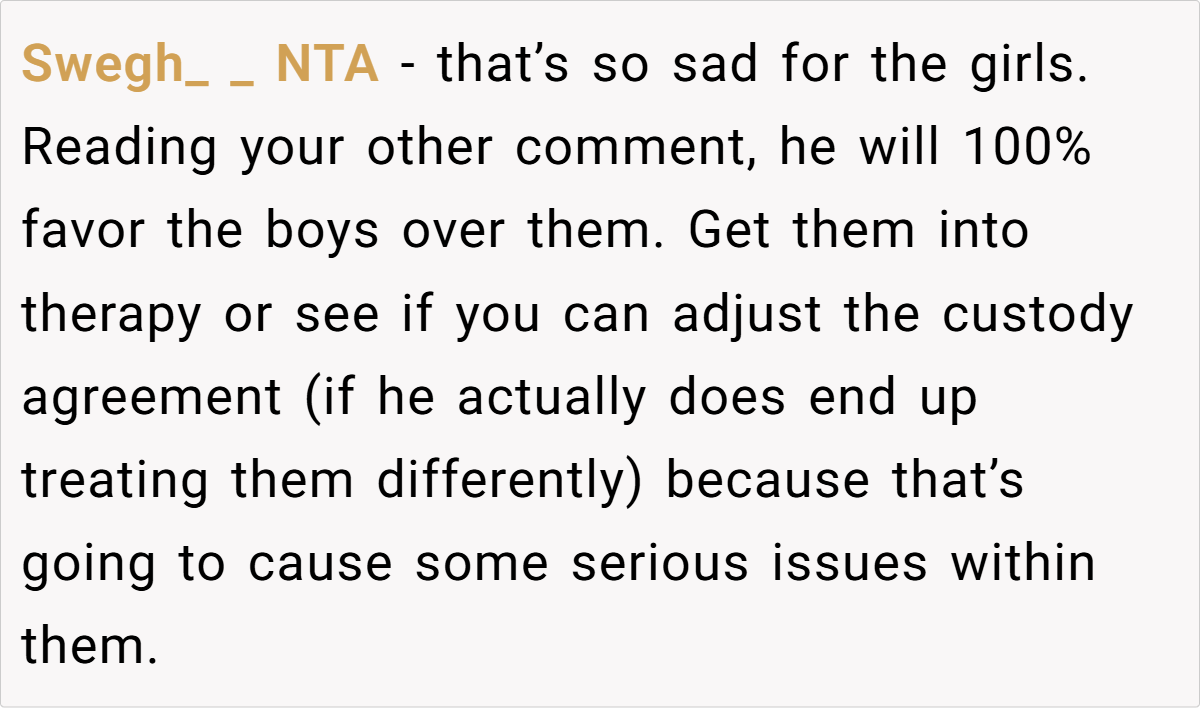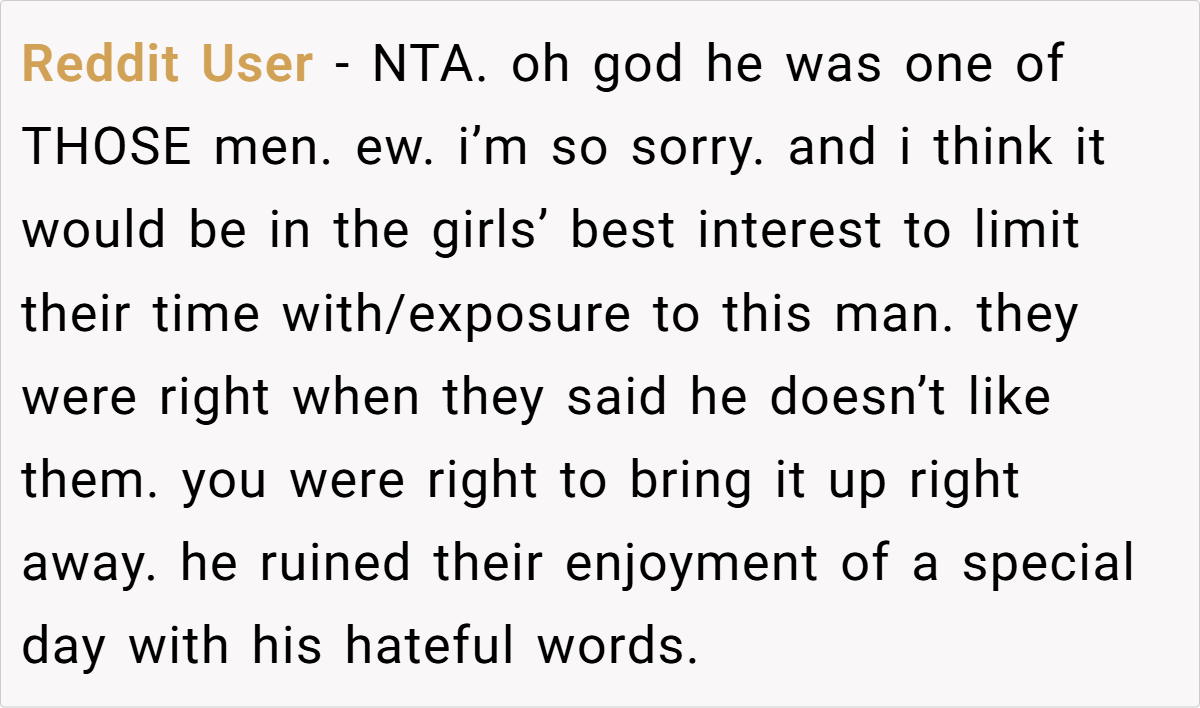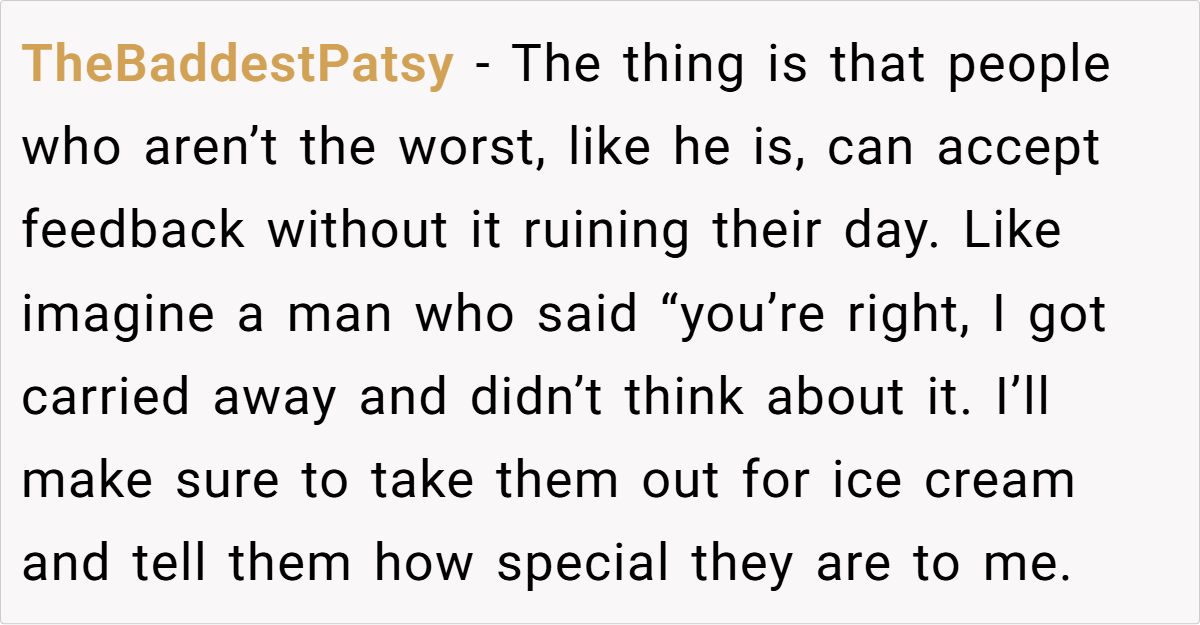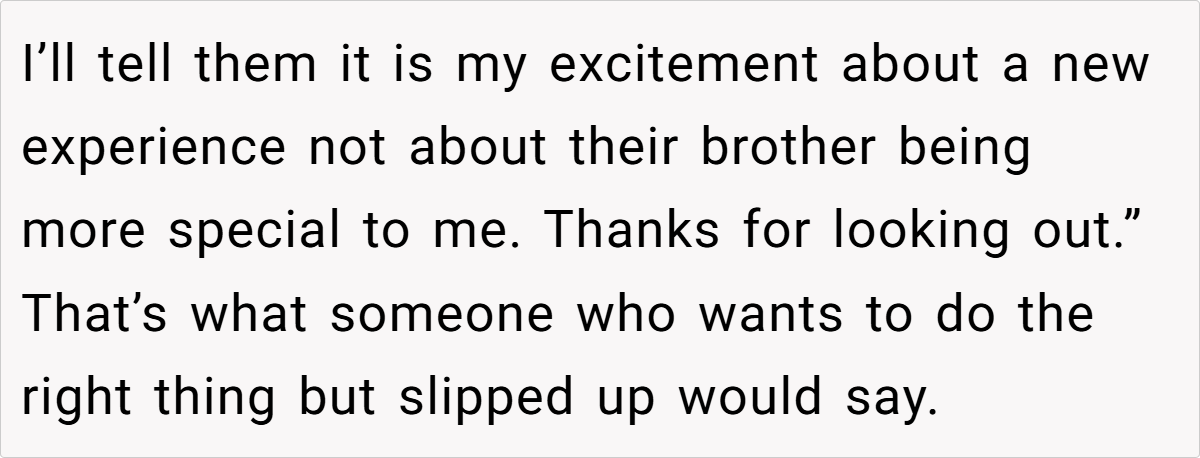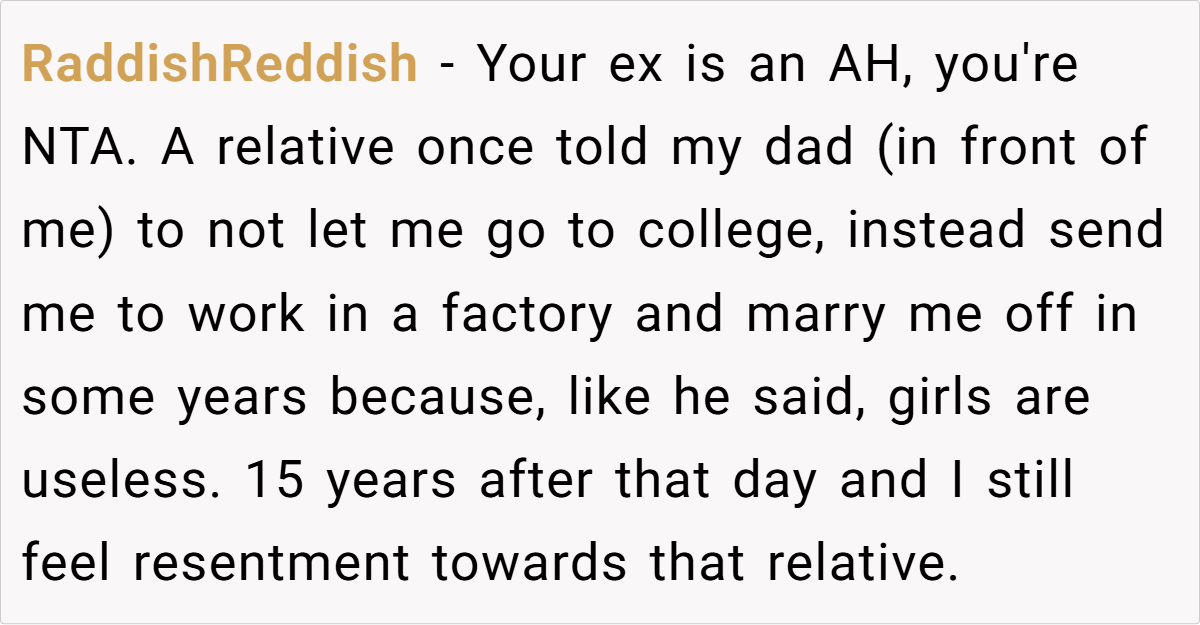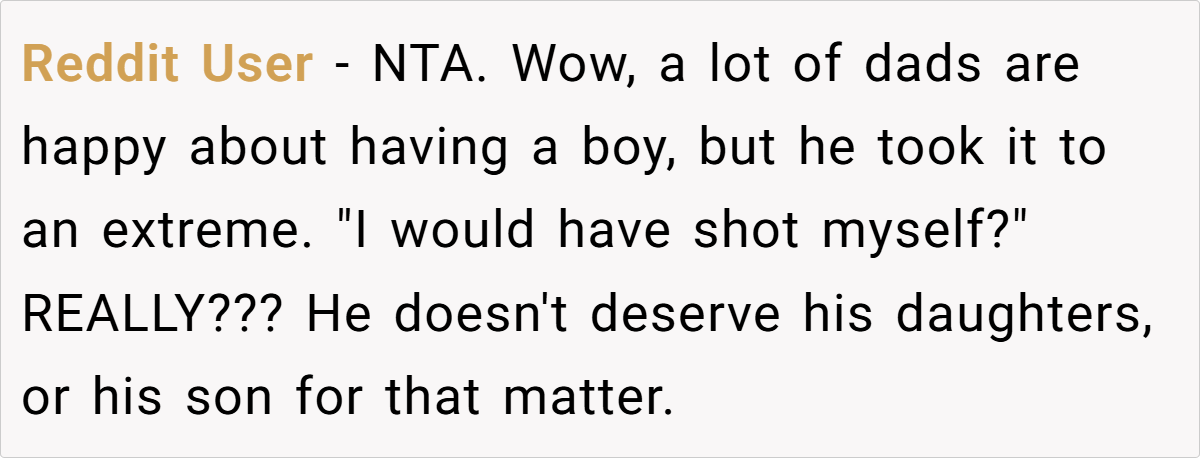AITA for telling my ex he was very inconsiderate of our daughters when he found out the gender of his new child with his wife?
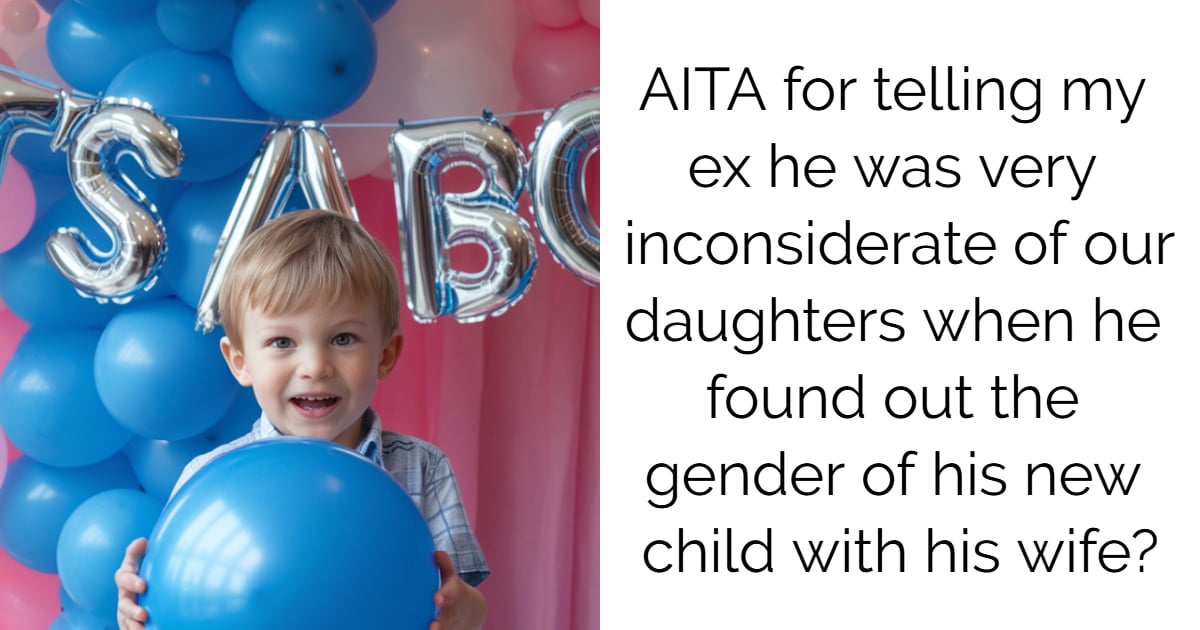
Gender reveals are meant to be joyous occasions, but for one mother watching via Facebook Live, it turned into a devastating moment for her daughters. Her ex-husband, celebrating the news of having a son, exclaimed “Thank God, I didn’t want more girls. I would have shot myself.” His two daughters, standing right there, heard every word—and their faces said it all.
Now, OP is being called “bitter” and “overreacting” for confronting him about how his words made their daughters feel. Was she wrong to call him out, or is he the one to blame for showing blatant favoritism?

‘AITA for telling my ex he was very inconsiderate of our daughters when he found out the gender of his new child with his wife?’

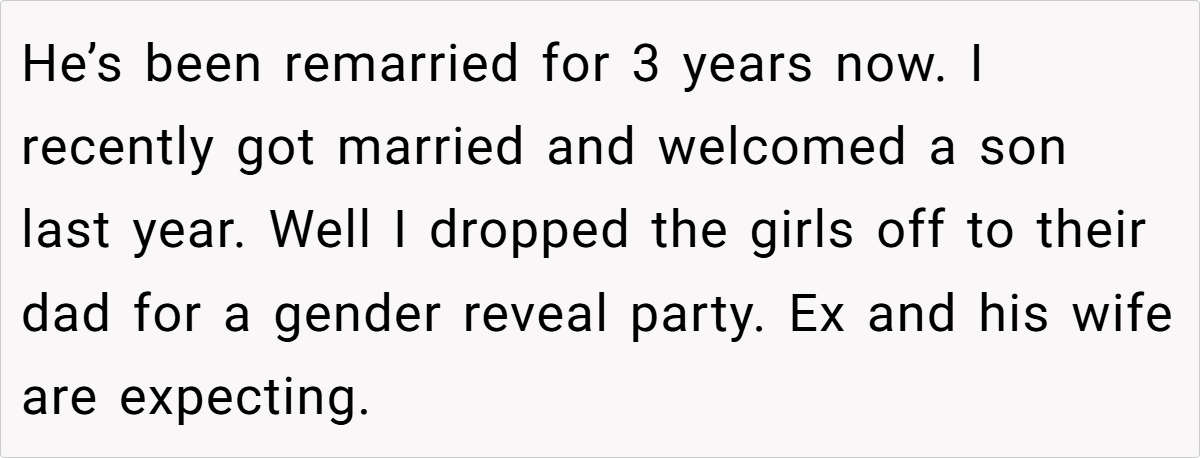
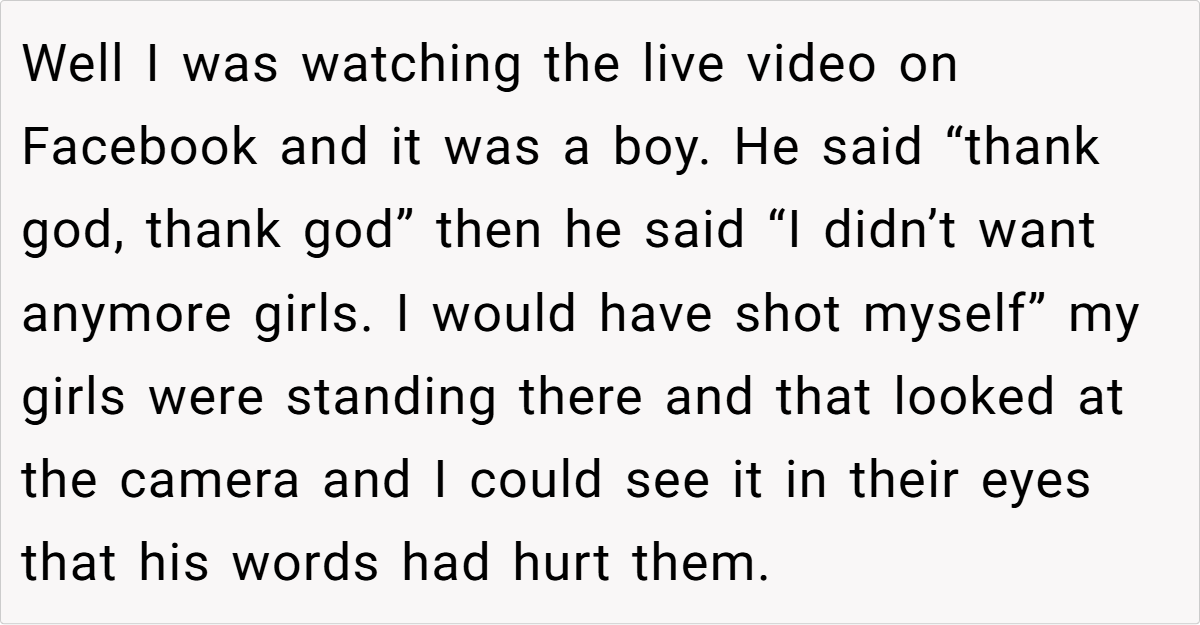
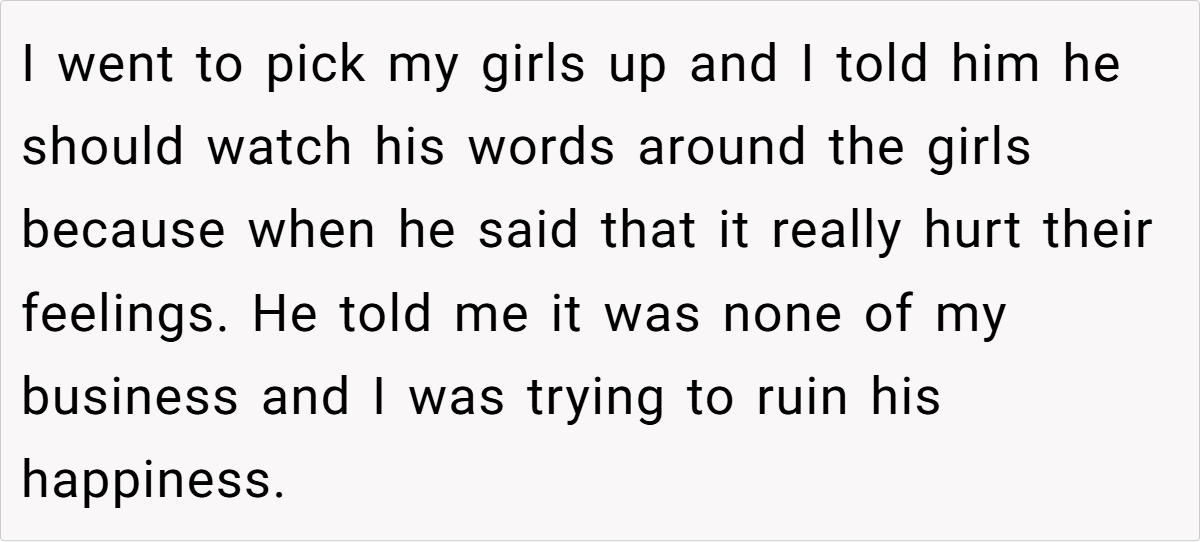
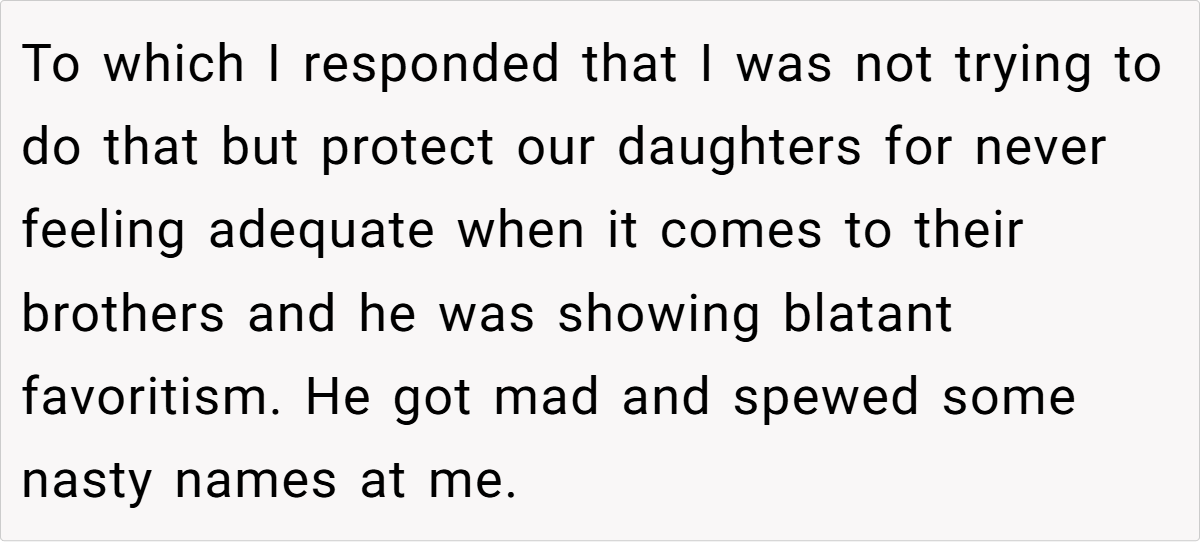

Expert Analysis:
How Favoritism Damages Children
Psychologists have long studied the impact of parental favoritism, and the research is clear: it causes deep emotional wounds that can last a lifetime. According to Dr. Ellen Weber Libby, a clinical psychologist and author of The Favorite Child, children who feel less valued than their siblings often develop low self-esteem, anxiety, and even depression.
“A child who perceives themselves as less loved than their siblings will internalize those feelings and carry them into adulthood, leading to issues in their relationships and self-worth,” says Dr. Libby.
Why This Incident Is a Big Deal
OP’s ex-husband may claim he was “just expressing his excitement,” but words matter—especially to children. As Dr. Lisa Firestone, a clinical psychologist, explains, “Parents don’t realize how much children absorb and interpret, often in ways that shape their entire self-perception.”
- Hearing “I didn’t want more girls” could make them feel less valuable than their brothers.
- Saying “I would have shot myself” over the idea of having another daughter is not just insensitive—it’s deeply damaging.
- His reaction being public makes it worse; he wasn’t just speaking privately—he made a clear declaration to everyone watching.
What OP Should Do Next
- Talk to the girls about their worth – OP has already started reassuring them that their father’s words don’t define their value. But reinforcing affirmations of love will be crucial.
- Consider therapy – If their father continues to show favoritism, the girls may benefit from therapy to navigate their feelings in a healthy way.
- Monitor his behavior going forward – If this favoritism escalates, OP may need to revisit the custody arrangement to ensure their daughters are in an emotionally safe environment.


